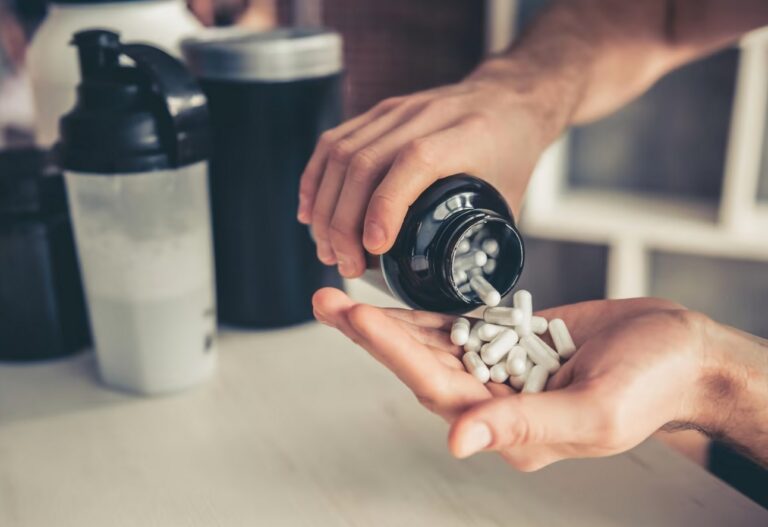Sports nutrition supplements can be a great way to improve your performance and overall health. However, like anything else, there are some things you should know before taking them. In this article, we provide you with the dos and don’ts of taking sports nutrition supplements so that you can make the best decision for your own health and well-being.

The Different Types of Sports Nutrition Supplements
There are many different types of sports and nutrition supplements on the market, so it can be hard to know what to take and when. Below, we outline the main types of supplements and provide a brief overview of what each is best for.
- Protein supplements. Protein supplements are typically recommended for athletes who need to increase their protein intake because it helps build and repair muscle tissue. Some popular protein supplements include whey protein, casein protein, and plant-based proteins. Whey protein is the most widely available and well-recognized type of protein supplement. It’s made from milk and contains all the essential amino acids needed to support muscle growth and recovery. Casein is a slower-digesting type of protein that can help increase muscle mass over time. Plant-based proteins are made from foods like soy, hemp, or quinoa, which are high in fiber and nutrients but low in calories. They’re often recommended for people who want to reduce their intake of meat or dairy products.
- Carbohydrates supplements. Carbohydrates are important for athletes because they help energy levels stay high during prolonged physical activity. Carbohydrate supplements can be divided into two categories: simple (straight) carbohydrates and complex carbs. Simple carbs are quickly digested and provide quick energy whereas complex carbs are more slowly digested and offer longer-lasting energy. Simple carbs are usually recommended for athletes who need to fuel their muscles quickly during an intense workout. Examples include glucose tablets, dextrose drinks, and candy bars. Complex carbs can help athletes refuel after a long workout or race by providing energy and sustained energy throughout the day. They’re often found in sports drinks, bars, and meal replacement products.
- Vitamins and minerals supplements. Vitamins and minerals are essential for healthy skin, hair, nails, and teeth. A deficiency in specific vitamins or minerals can lead to conditions like fatigue, muscle weakness, or even chronic illness. Athletes need a balanced diet to get all the nutrients they need, but supplements may be necessary for people who don’t eat a healthy diet or who are physically active outside of the gym.
Some vitamins and minerals that are commonly taken by athletes include B vitamins (such as B12), iron, zinc, magnesium, and potassium. Some minerals that are important for athletes include calcium, magnesium, selenium, chromium, and iodine. Sports supplements typically contain a combination of different nutrients so that the body can get the most benefit from them.

What to Look for in a Sports Nutrition Supplement?
When it comes to taking sports nutrition supplements, it’s important to do your research and make sure you’re taking the right product for your needs. Here are some dos and don’ts of taking sports nutrition supplements:
Do:
- Consult with a healthcare professional before starting any new supplement regimen. They can help you determine whether or not supplementation is right for you, and can provide guidance on the most effective products to take.
- Be aware of the ingredients in the supplement you’re taking. Many supplements contain specific ingredients that have been shown to be beneficial for athletes, so be sure to read the label carefully.
- Make sure that your supplement is certified by an independent organization. This will ensure that the product is of high quality and free from harmful chemicals.
- Take your supplements with food or water, as appropriate. Supplements can be harsh on the stomach if taken on their own, and may cause adverse effects if taken in large doses without food.
- Avoid taking multiple supplements at once; doing so can increase the risk of side effects. Instead, split your dosage evenly among different supplements to avoid any potential interactions between them.

Don’t:
- Skip meals to save time during your workout regimen. This will only result in a sluggish body and decreased performance.
- Take supplements without consulting a healthcare professional. Many of the ingredients in supplements are not well-known or understood, and could lead to adverse effects if taken incorrectly.
- Take supplements if you’re not currently training or competing. Taking supplements before or during exercise can increase your intensity and improve your performance, but it’s important to consult with a healthcare professional first if you haven’t been working out regularly.
- Take supplements if you’re pregnant or nursing. There is no evidence that taking sports nutrition supplements will benefit pregnant women or infants, and may even be harmful. Instead, focus on incorporating healthy foods into your diet while pregnant and nursing.

How to Take a Sports Nutrition Supplement Correctly?
As we all know, supplements can provide immense benefits to athletes striving to improve their performance. But like anything else in life, taking a supplement correctly is key to reaping the full benefits. Here is a list of the most common types of sports nutrition supplements and when to take them:
- Pre-workout supplements. Pre-workouts are designed to give you an edge in terms of energy and performance. They are typically taken 30-60 minutes before your workout.
- Post-workout supplements. Post-workouts are designed to help you recover quickly and optimize muscle growth. They are typically taken within 30 minutes after your workout.
- Carbohydrates. Carbohydrates are essential for energy production during exercise. They should be consumed before, during, and after workouts to optimize performance.

When to Stop Taking a Sports Nutrition Supplement?
There is no one answer to this question, as the best way to stop taking a sports nutrition supplement depends on the individual. However, some general tips for stopping supplementation include gradually tapering off over a period of several weeks or gradually increasing your regular exercise routine. Additionally, it is important to consult with a doctor before discontinuing supplements if you are currently using any medications or have any health concerns.

